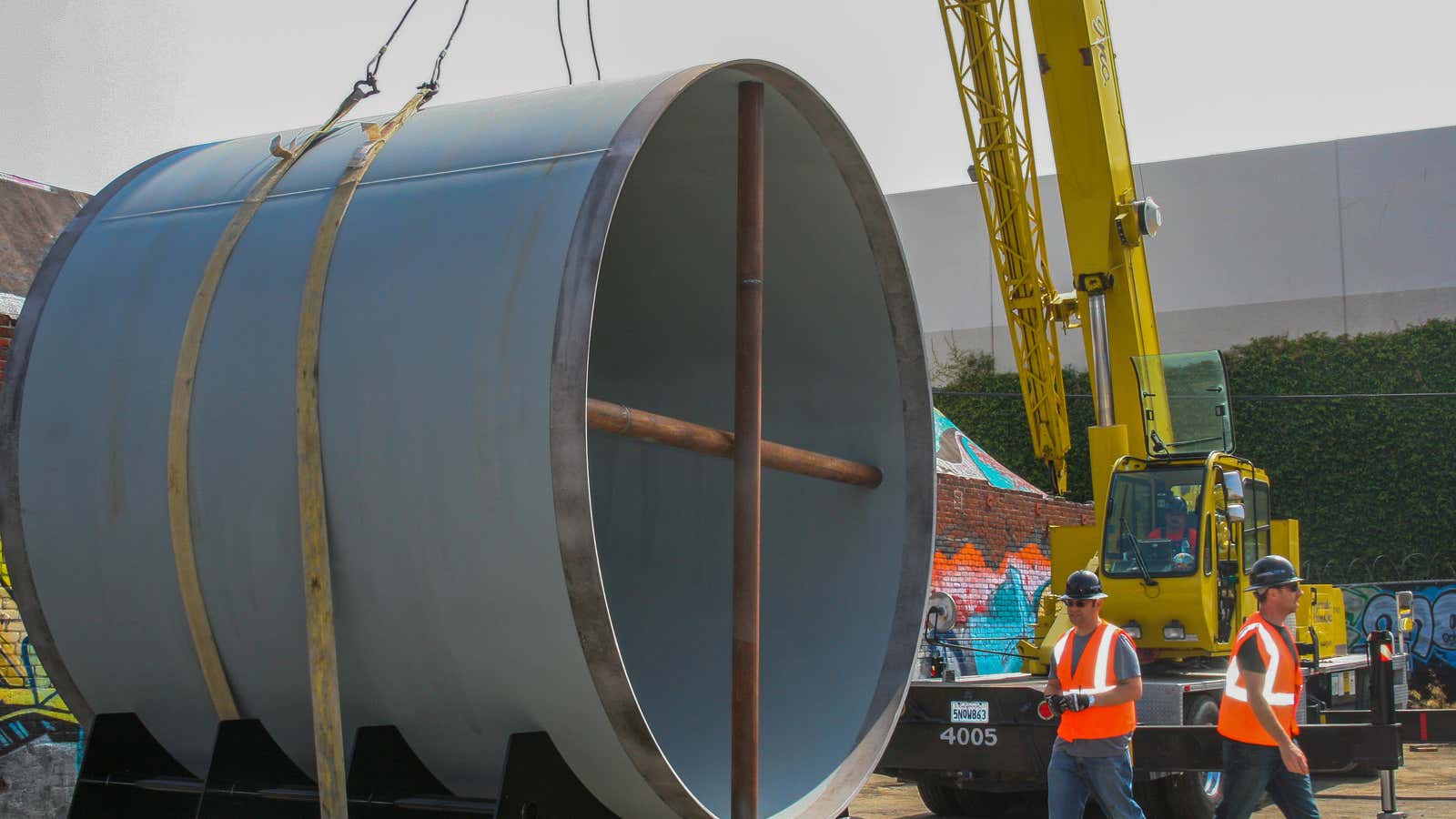If all goes well, an experimental Hyperloop track will soon hiss and fizz into life in North Las Vegas, Nevada, testing out the technologies that could—some say—revolutionize how people travel from A to B across the US.
Like a giant-sized version of those air-tubes that some stores use to shuttle cash around between the back office and the registers, the hypothetical Hyperloop transport system imagines small passenger cars shuttling around in air-tight tubes at incredible speeds—750 miles per hour or more. At this speed, which is close to the speed of sound, a journey between say, San Francisco and Seattle would take less than an hour.
Elon Musk, billionaire investor behind SpaceX and Tesla, recently popularized the Hyperloop idea as a possible clean alternative to air travel, automobiles, and the other environmentally damaging ways we travel today. Now a company called Hyperloop Technologies—which isn’t directly affiliated with Musk—is promising to build a scale model test track to experiment with some of the systems that would make Hyperloop work. The track will be in the Mountain View Industrial Park in North Las Vegas and could begin testing as soon as early 2016.
Hyperloop transport sounds simple, but its systems are complex and all have to work together in order. The passenger cars have to float on a thin cushion of air inside the pneumatic tubes, which are kept nearly at vacuum pressure. This is so the cars can coast in an almost frictionless way down the track as they get pushed by a linear electromagnetic propulsion system. Electromagnetic drives similar to this have been in the news recently because they’re being used to replace steam catapults on aircraft carriers.
The proposed one-kilometer test track in Las Vegas will have top speeds of around half that of a full Hyperloop system. This is because it’s mainly designed to test the electromagnetic drive and will be in open air instead of the partial vacuum of the final design. (Friction from the air limits how quickly the test cars can be accelerated down the relatively short test track.) The test track could, all the same, teach Hyperloop Technologies important lessons it could use to build a longer, faster test track and, ultimately, a complete system by 2020.
That Elon Musk is promoting Hyperloop is telling. The entrepreneur has already disrupted the global automobile industry with Tesla cars, and his SpaceX business is achieving incredible successes as one of the first new commercial space companies to rival older names like Boeing.
